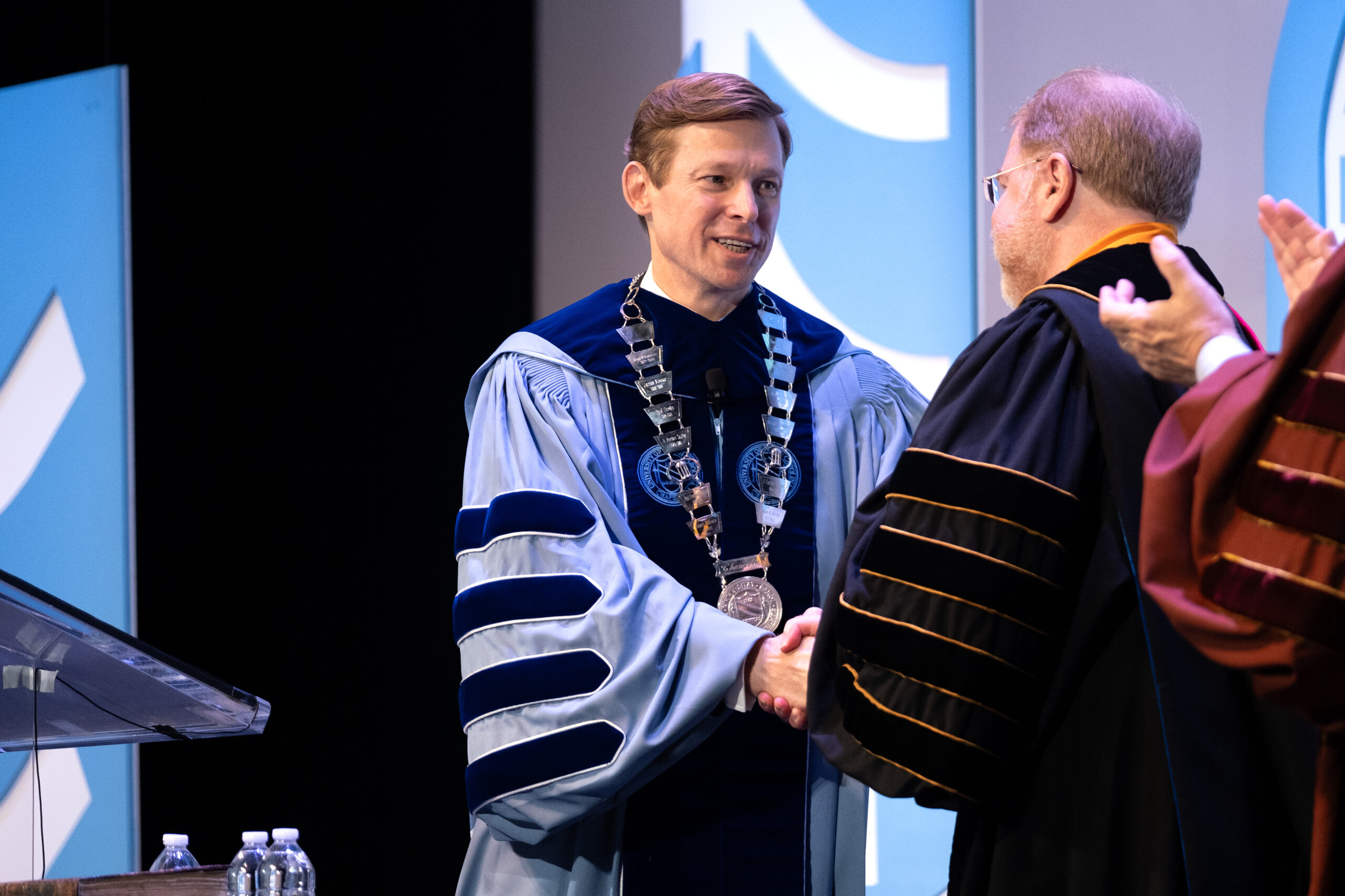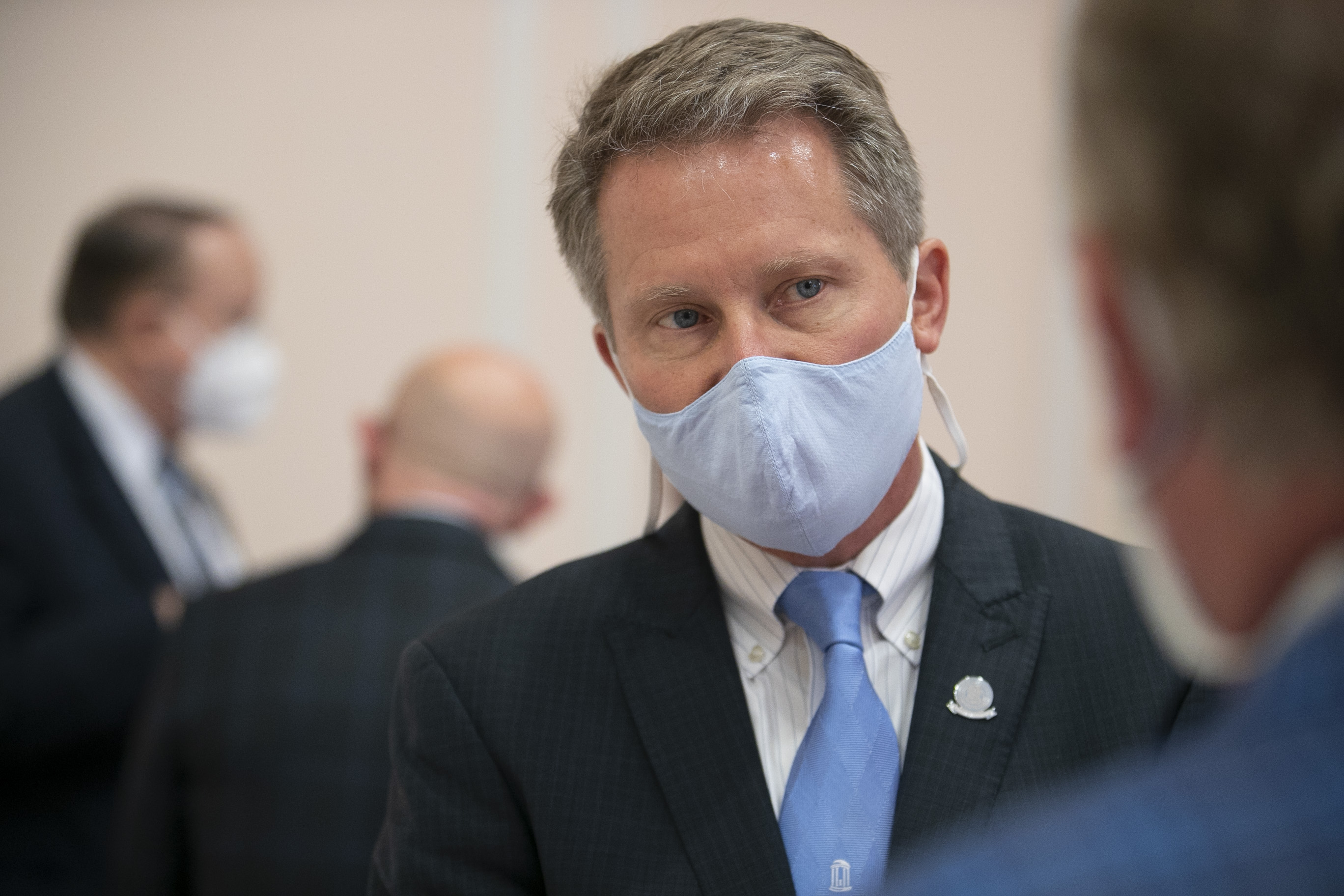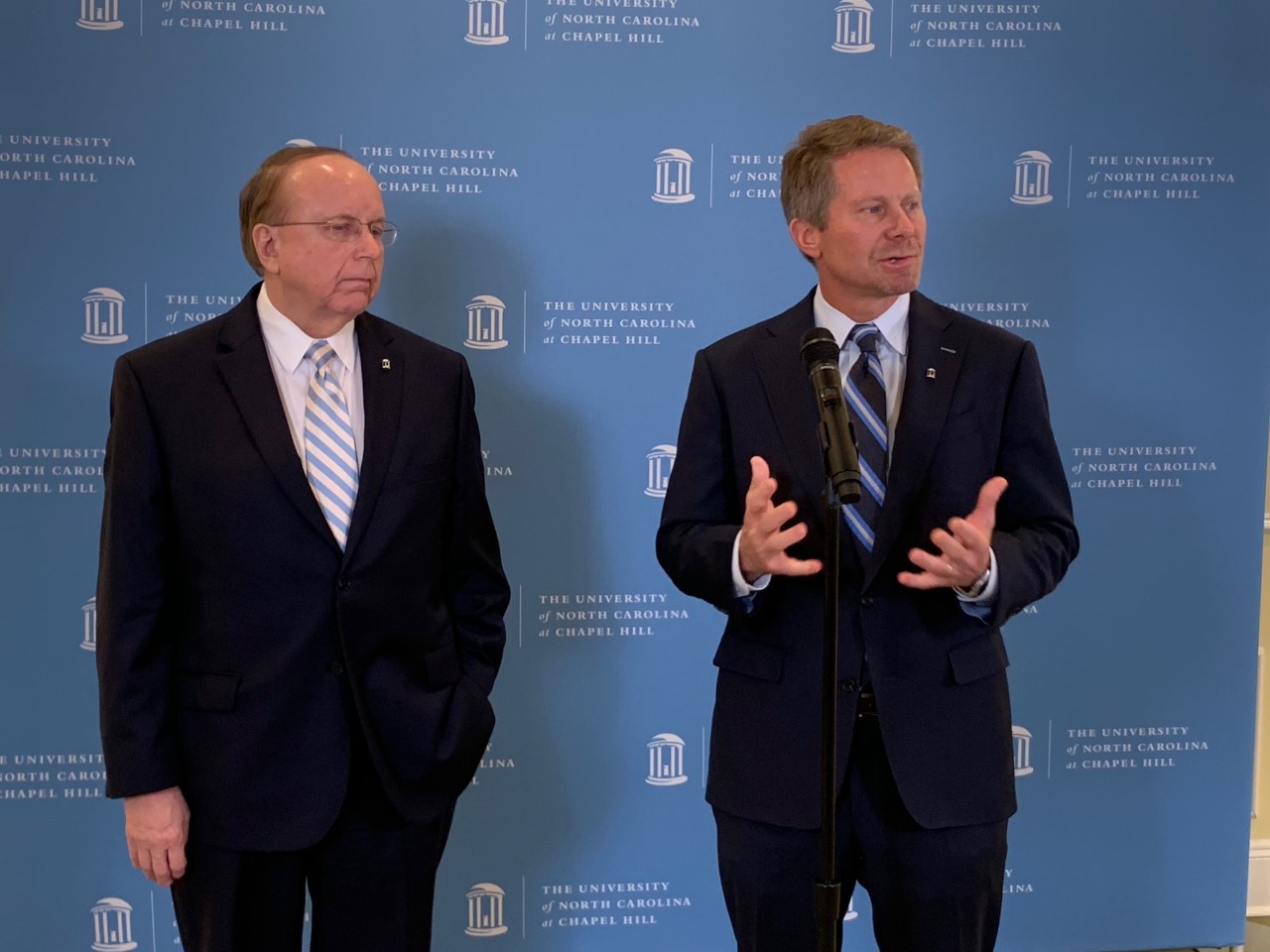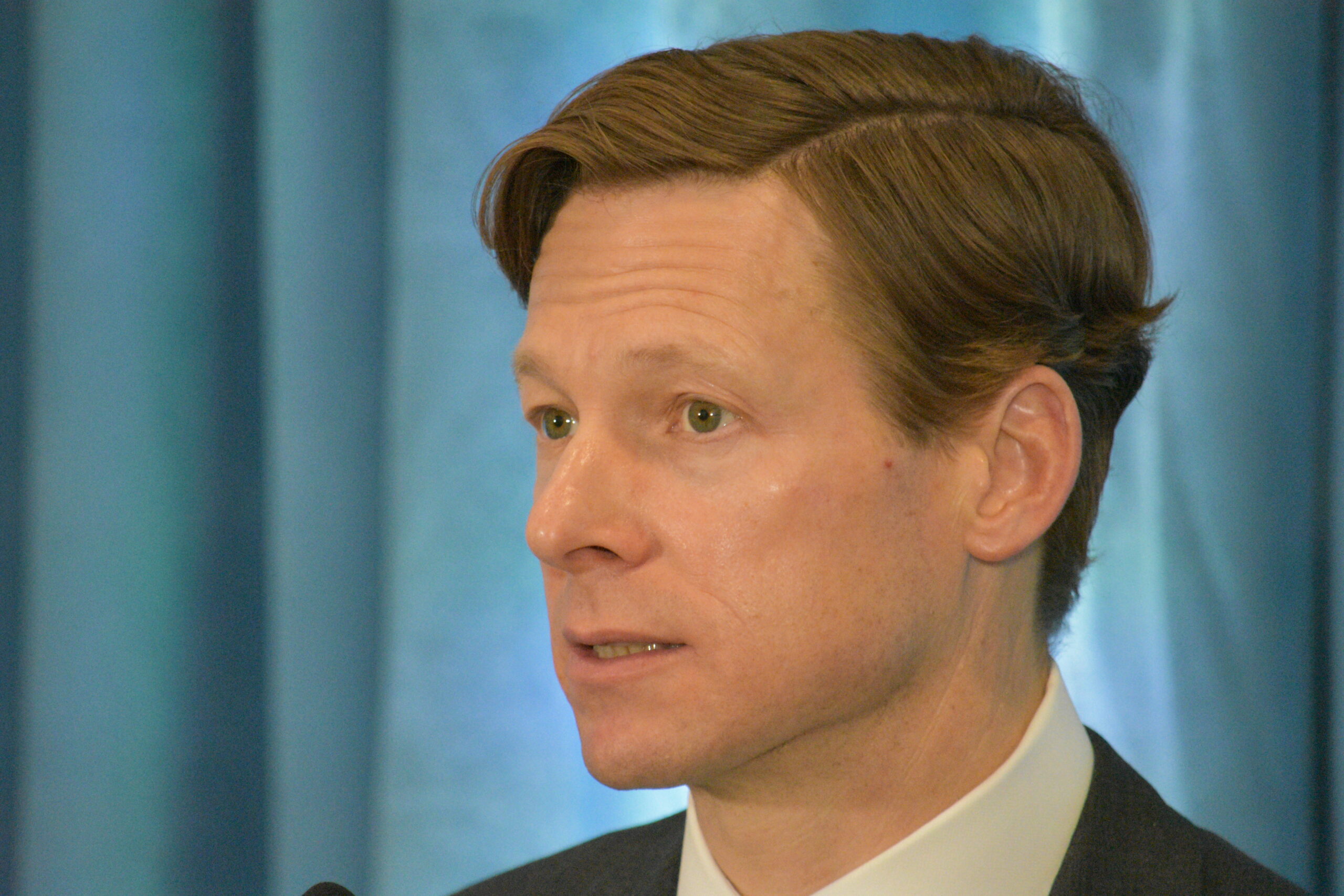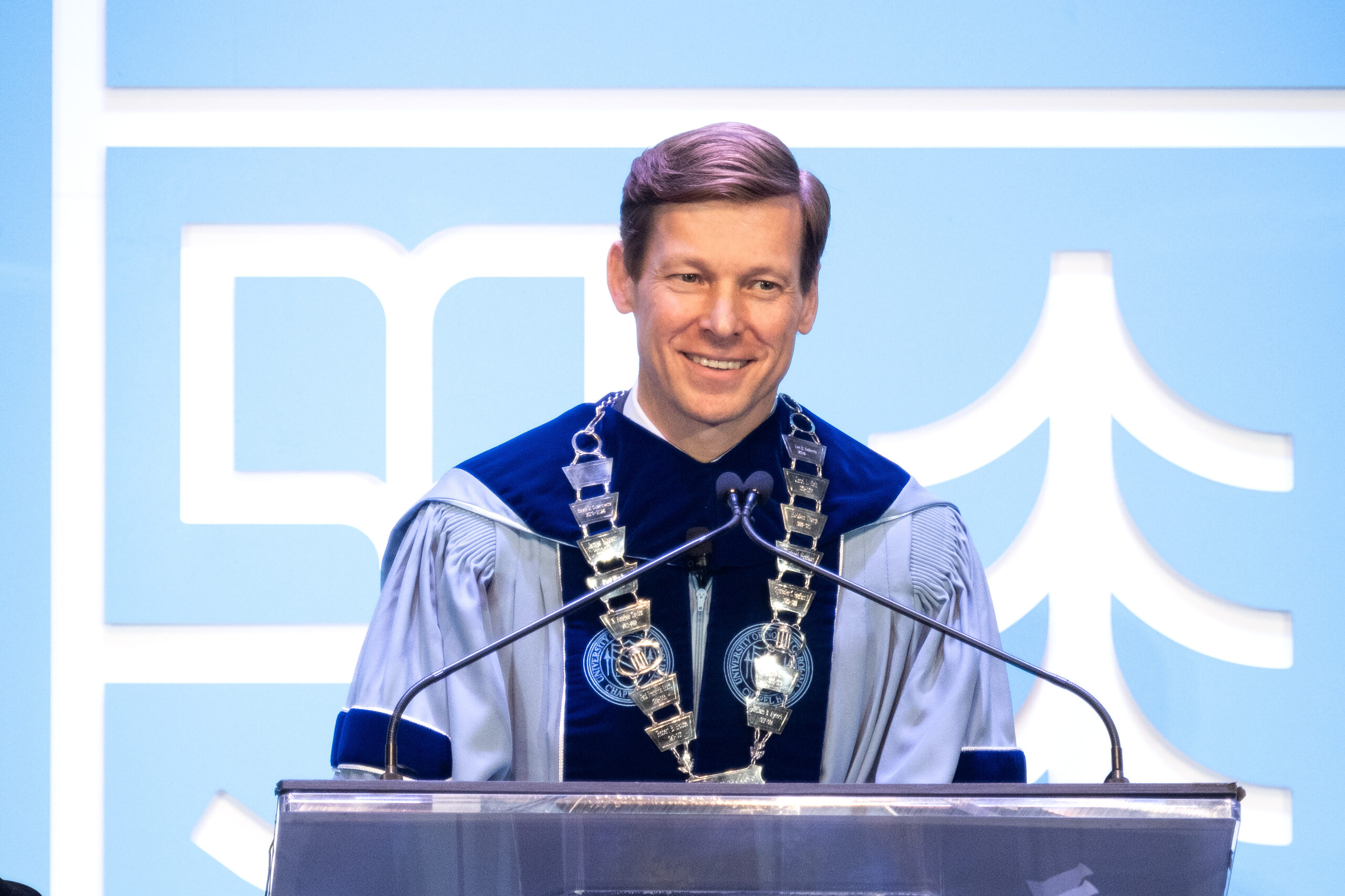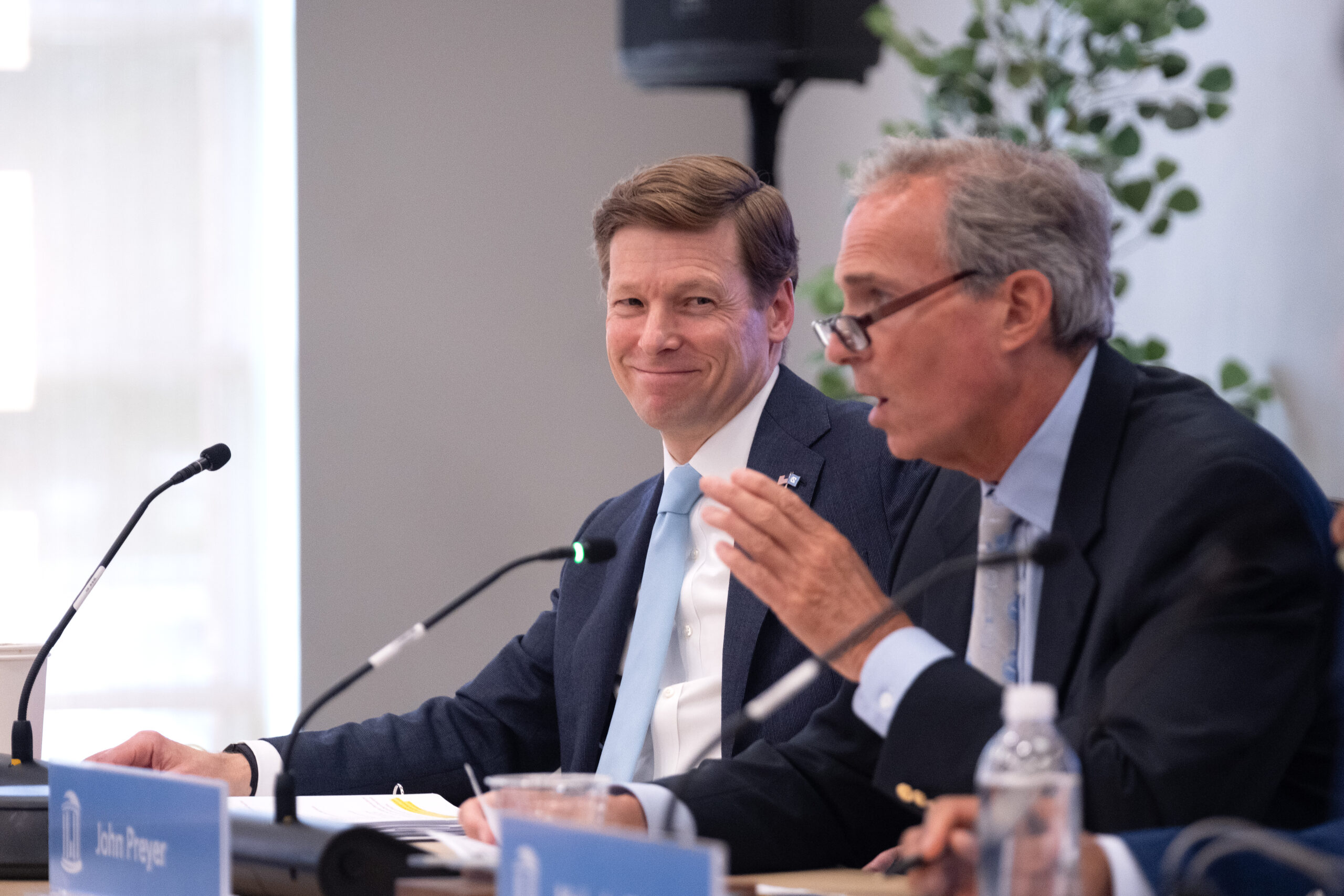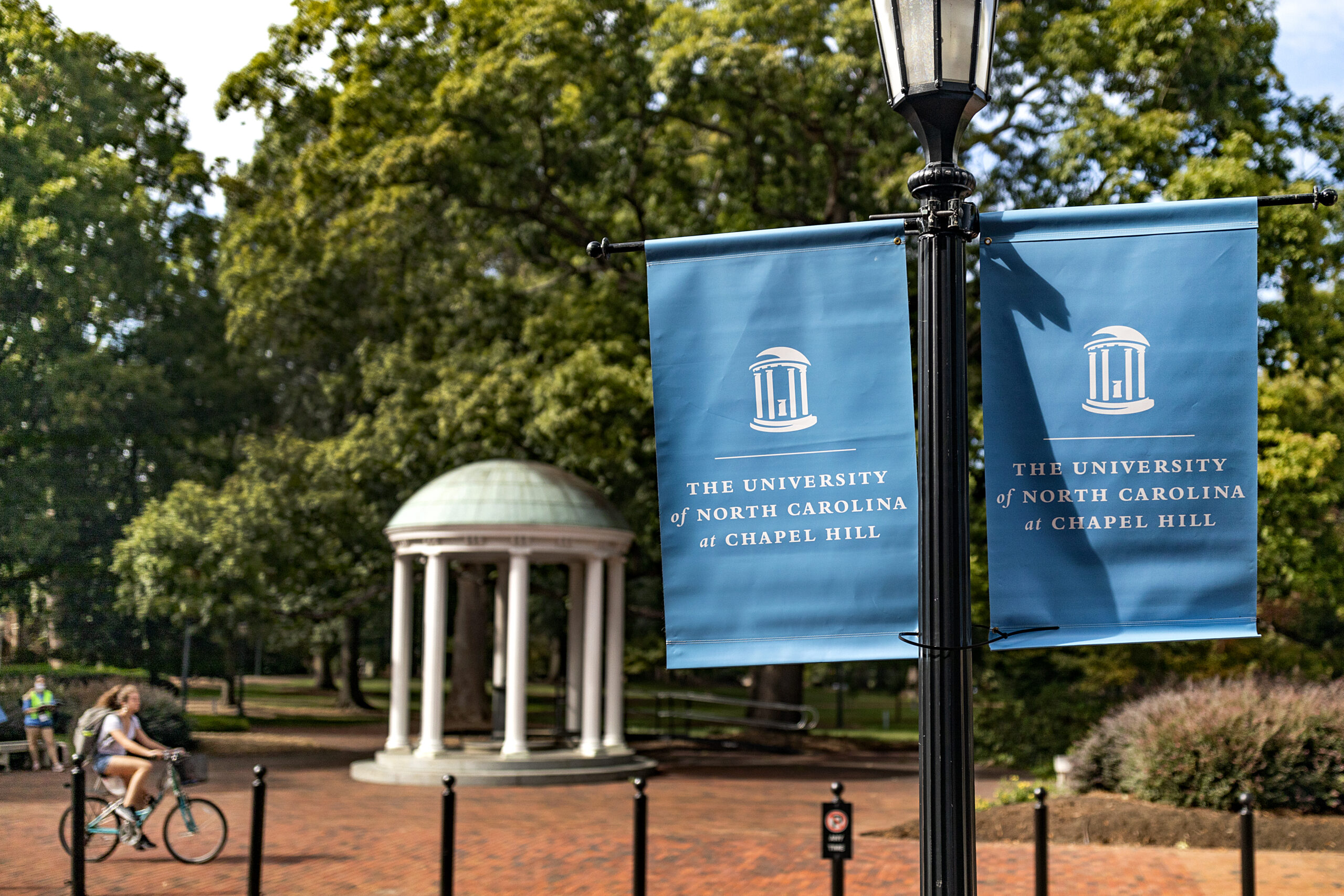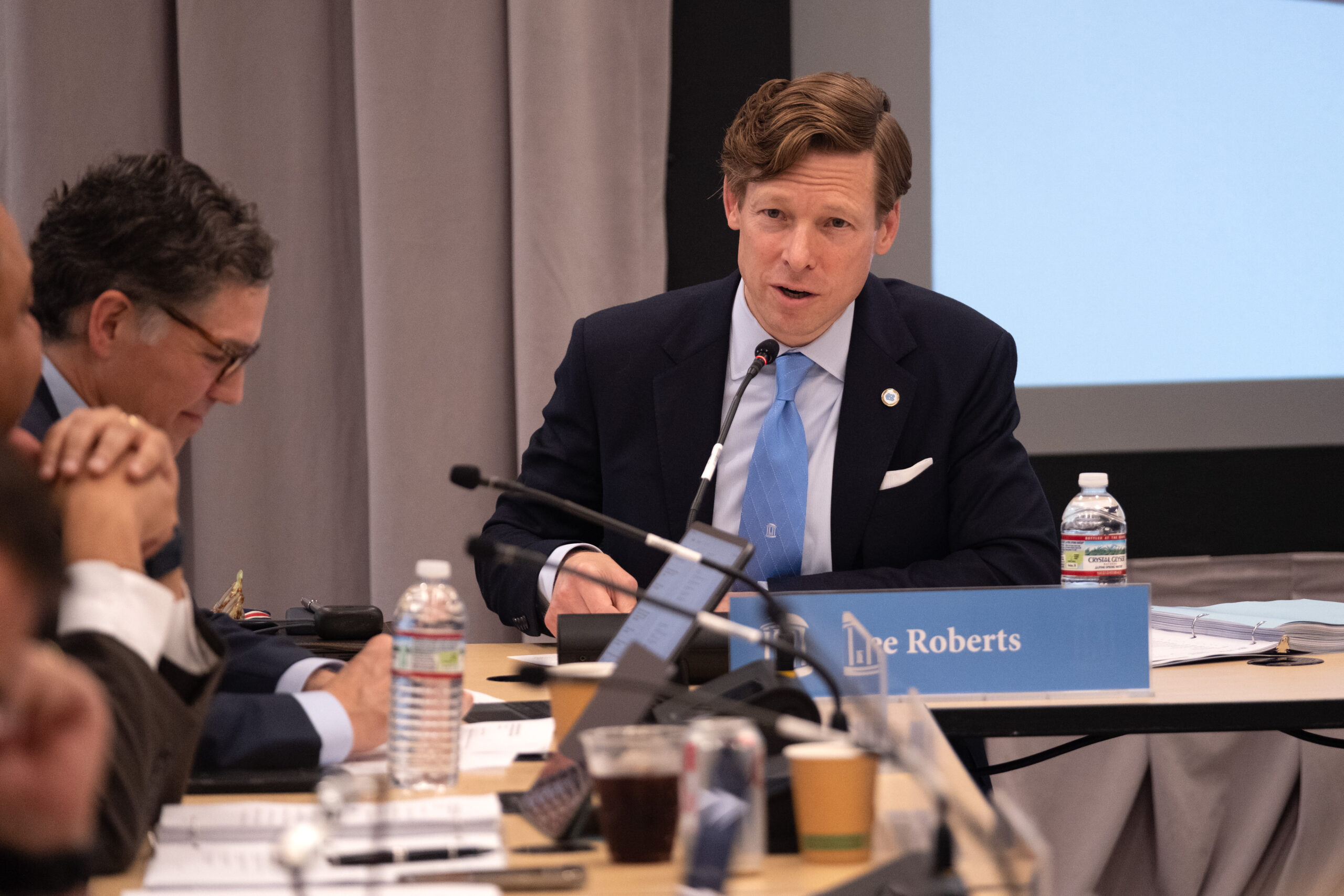To reflect on the year, Chapelboro.com is re-publishing some of the top stories that impacted and defined our community’s experience in 2024. These stories and topics affected Chapel Hill, Carrboro and the rest of our region.
One of the things the UNC campus and broader community grappled with at end of 2023 was the departure of Kevin Guskiewicz, who announced he would be leaving after nearly five years as the university’s chancellor to take the equivalent role at Michigan State. Within the month of news first breaking that he would be leaving, Lee Roberts was chosen to the interim role — signaling 2024 as a year of opportunity for the financier and former state budget director to move into the leadership of one of the world’s top public universities.
Lee Roberts’ name first surfaced as an interim — and permanent — option to lead UNC-Chapel Hill in December 2023, as The Chronicle of Higher Education reported via three sources that Roberts was favored by UNC System President Peter Hans to serve as the interim chancellor and as the permanent candidate. The pick stirred mixed emotions for the UNC community, as Roberts’ background is not in academics and he had little lived experience in public higher education, having attended both Duke and Georgetown for his degrees. Based on the increasing politicization of the UNC System and university trustees, questions were also raised about any connections between Roberts and sitting lawmakers thanks to his time working in the administration of Republican North Carolina Gov. Pat McCrory.
Ultimately, Roberts was named to the permanent role in August. When asked whether he was knowingly given an advantage from his interim stint or his past relationships with lawmakers in the General Assembly, Roberts said no — and that he only hoped those relationships could be used to best serve the university.
“Nobody promised me anything,” he said at a press conference after being formally named the permanent chancellor. “The process felt pretty rigorous from my standpoint as a participant. And if you look at the folks who are on the search committee, it’s a long list of pretty credible, well-respected senior leaders across our campus and across our community. I understand there are people who are skeptical, and that’s probably always going to be true. But my job is to continue as much outreach as I possibly can, meet with as many different folks as I can, make sure I’m hearing as many different voices as possible.”
The most high-profile moment leading up to Roberts’ selection was not the search itself, but instead his role in coordinating a response to demonstrations on campus over the ongoing war in Gaza between Israel and the militant ruling group Hamas. The campus experienced varying protests during the fall and winter in the immediate wake of Hamas’ murder and kidnapping of Israeli citizens and Israel’s subsequent military advancement into and shelling of Gaza. But things came to a head in the spring, as groups like the UNC chapter of Students for Justice in Palestine organized an extended display to push back on Israel’s killing of Palestinian citizens and ask their universities to cut ties to groups or pull investments that supported Israel’s military. Amid the wave of other encampment demonstrations on college campuses in April, a group of UNC campus community members and other activists started one too — which lasted more than four days. While the university had warned organizers earlier in the month that putting up tents would violate university policy, the group made a show of constructing tents on the third day of its demonstration and said it chose to violate university policy out of protest against the genocide of Palestinians.
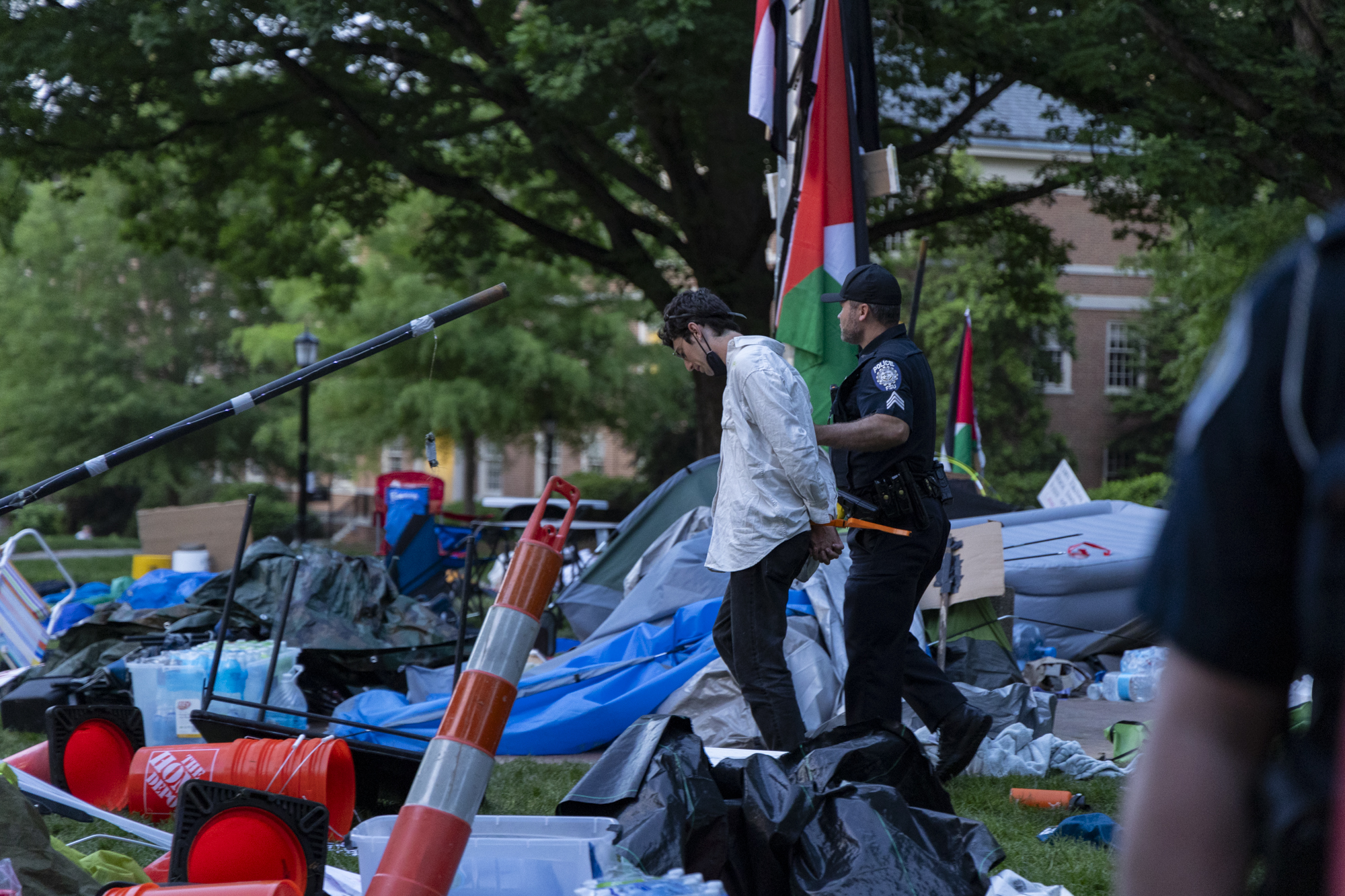
A police officer arrests a demonstrator on the morning of April 30, 2024 in Chapel Hill, N.C. The pro-Palestine protesters were arrested due to trespassing on campus grounds, according to police. (Photo via Jennifer Tran.)
Roberts’ administration coordinated a heavy law enforcement presence to arrive at the encampment in the early morning hours of April 30, giving protesters only a few minutes to either disperse or be arrested for trespassing on the campus quad. More than two dozen arrests were made, with 13 arrests of people with university affiliations, and the site was cleared. That afternoon, hundreds of protesters gathered again in front of South Building to respond to the treatment of those detained at the encampment and to share pro-Palestinian messages. The demonstration took a turn when some protesters took down the U.S. flag at the nearby flagpole in favor of a Palestinian flag — and Roberts led a group of law enforcement officers out to re-raise the U.S. flag, causing a dramatic scene that garnered national attention. When speaking to a scrum of reporters in the moments afterward on the steps of South Building, Roberts said the university “doesn’t belong to a small group of protesters,” which is what sparked the quick response from police to remove the Palestinian flag.
“To take down that [U.S.] flag, and put up another flag — no matter what other flag it is — is antithetical to who we are,” he said, “and what this university stands for…what we have done for 229 years.”
Roberts later doubled down on the decision to end the encampment through law enforcement, saying the action came not from an attempt to quell free speech or the students’ message and instead from their choice to break “simple, not particularly stringent rules” of how to use university grounds.
“If the protestors had continued following the rules, there wouldn’t have been any escalation at all,” he said to 97.9 The Hill in May. “I think it was pretty clear to everyone that they were the ones who had decided to force a confrontation.”
With tensions still simmering, the campus community transitioned to its end of academic year celebrations — which included Roberts’ first commencement ceremony leading the university. For the first time, the graduation event was held in the evening, as the Class of 2024 was celebrated with a fireworks show and significant fanfare to cap off their four years initially challenged by the COVID-19 pandemic.
Over the summer, several university leaders and contributors worked on a series of topics Roberts said he wished to further explore after conversations with the campus community during his first few months. The interim chancellor commissioned four working groups to explore UNC’s options on how to approach several top issues facing the university and higher education to better inform its next strategic plan — which Roberts’ administration will help build out and implement as Guskiewicz’s “Carolina Next” strategic plan will reach its five-year mark in 2025. The working groups shared reports on how UNC can approach updating and tackling its Physical Master Plan, evaluate its works in applied sciences, improve enrollment planning, and prepare for the growth of generative artificial intelligence.
The UNC System’s selection of Roberts as its permanent pick for the chancellorship came in the days before classes began for the new academic year. Not long after, the chancellor took a trip with the Chamber for a Greater Chapel Hill-Carrboro to check out the community of one of UNC’s peer institutions: Ann Arbor, Michigan. Having emphasized his belief in maintaining and building the town-gown relationship between UNC and Chapel Hill, the trip offered an opportunity to connect with other local leaders and see what parallels exist with other college towns.
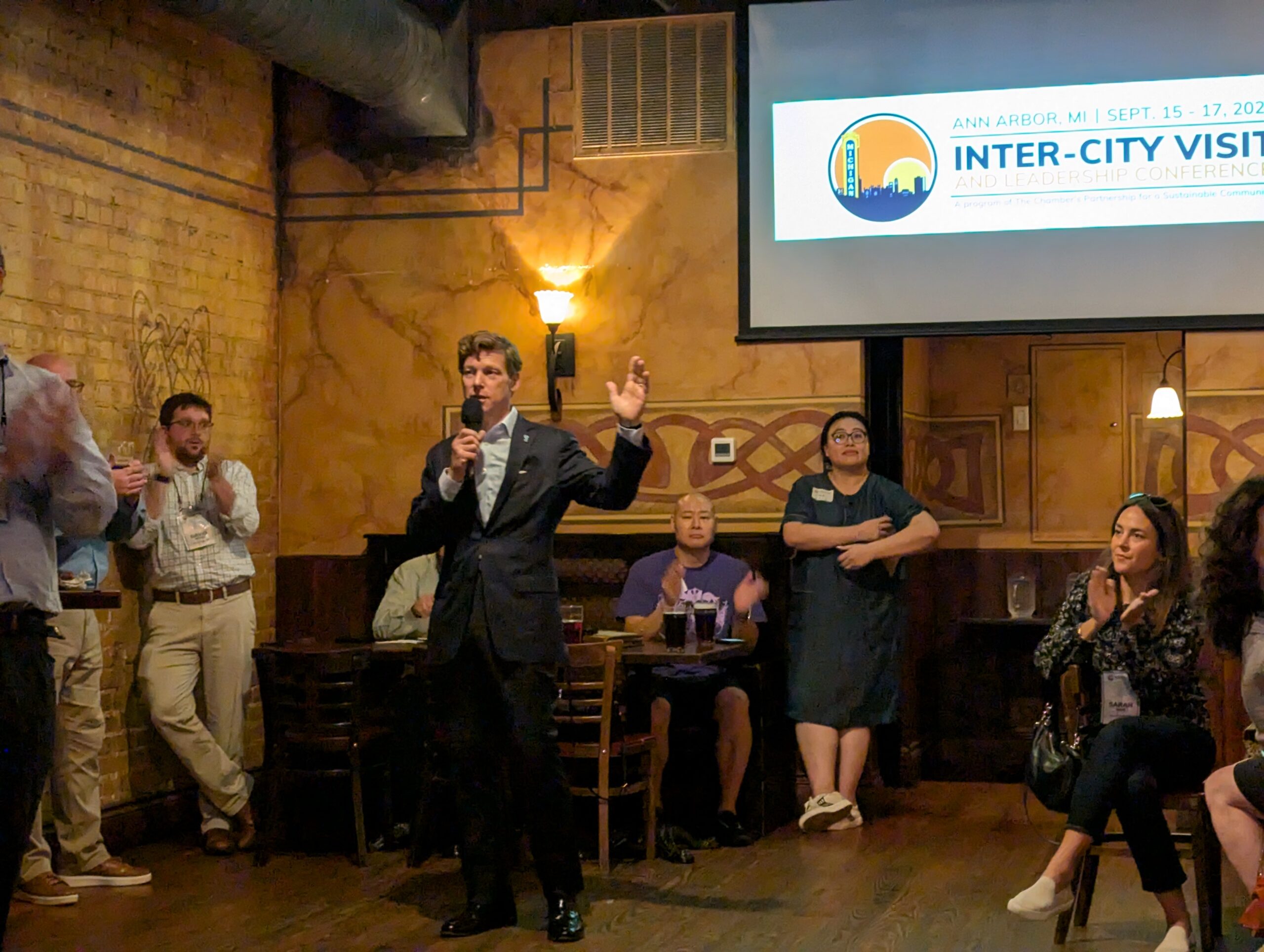
UNC Chancellor Lee Roberts welcomes the 2024 Inter-City Visit attendees in Sept. 2024. (Photo by Aaron Keck.)
“Ann Arbor’s about twice [our] size, so not everything they’re doing is relevant to what we’re doing here,” Roberts told 97.9 The Hill in October, “but they’re doing some interesting things on affordable housing – and I was very impressed with the professionalism [with which] they’re dealing with challenges around crime, homelessness, affordable housing. That’s something we can take away: most municipalities are dealing with the same issues broadly around the country, [so] we don’t need to reinvent the wheel. We can apply best practices from other places.”
During the University Day celebrations held each Oct. 12 on campus, Roberts’ formally took the oath and was installed as UNC’s 13th chancellor. During the ceremony, both Roberts and Hans called his appointment the “next chapter” for the flagship North Carolina university — as the new chancellor maintained the goal is set to the bar for “what higher education should be, in North Carolina and beyond.”
“I commit to all of you that I will tirelessly protect and champion that legacy,” Roberts said to the gathered crowd. “I’ll do everything I can to support your good ideas, encourage opportunities, and continue building a community where everyone can thrive.”
In the winter, Roberts experienced two athletics-related events that are both a major milestone for a university leader: his first national title and his first widespread coaching search. The UNC women’s soccer team earned the program’s 23rd championship on Dec. 9 with a 1-0 win over Wake Forest, which is UNC’s 62 total national title in its Division I athletics history. At that same time, Carolina was seeking its next coach for the gridiron — as Mack Brown was dismissed after UNC football went 6-6 in the regular season. The resulting pick — whether the choice of the athletic director, university trustees or donors — was one that again thrust UNC into the national spotlight, as former NFL legend and eight-time Super Bowl winner Bill Belichick signed on to transition to college football. During his introductory press conference, Belichick credited conversations with the chancellor during negotiation as playing a positive role in the move.
Featured photo via Jon Gardiner/UNC-Chapel Hill.
Chapelboro.com does not charge subscription fees, and you can directly support our efforts in local journalism here. Want more of what you see on Chapelboro? Let us bring free local news and community information to you by signing up for our newsletter.

